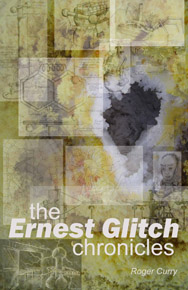VICTORIAN
SCIENTI - FICTION!!!

(Natural philoso-fiction?)
|
|
|
|
Why do some people say "We don't
|
|
ELECTRICITY, n. The power that causes all natural phenomena not known to be caused by something else. <evil grin!> (Ambrose Bierce, The Devil's Dictionary , 1911) |
So, according to at least one Ambrose, electricity is "the power."
Doesn't this mean that the true Quantity of Electricity is to be
measured... IN WATTS?! aHeh.
|
Still more...
If we inspect nearly every book below the undergraduate college level,
they'll teach us what Electricity actually is. It's not the "Charge" of
Maxwell/Faraday/Einstein/etc. It's not the phenomena-class like
Optics or
Weather. Instead, they claim that electricity is the current! Humm, so now
the nitrogen/oxygen has become "the wind," and we have no word for "air?"
And, if the
river-water ever should halt its flow, it means the water has vanished,
...since the
word "water" now actually means current? Yep. Modern school books
directly
contradict the centuries-old historical use of the term "electricity."
They teach kids that electricity is the flowing motion of
electrons, rather the old physics version, where electricity is the
electrons themselves.
So, if "electricity" is now the flowing-motion, what exactly is flowing
inside the wires? Heh, the books also say that "electricity" is flowing.
OF COURSE!!! Why didn't I think of that! When some
electricity starts flowing, its flowing motion is also called
"electricity!" So very twisted.
Today when discussing circuit-analogies, we're all expected to
teach our students
that, whenever we turn on a kitchen faucet, no water results, but only a
bunch of "flow" comes out? Also, just what stuff is flowing inside the
plumbing
pipes? Answer: "current" is flowing! Not water. Turn on the faucet, and
you can fill your bucket with "current." Next, we shall eliminate the
word "water," never mention it anywhere, and also teach that the H2O molecule
is a tiny particle made of "current.")
This is not any joke.
In physics, the electron may correctly be called a "charge-carrier"
...but in each textbook in contemporary electrical engineering, instead we
call the electron by the name "current'carrier." It's true. Go and look.
The same texts don't discuss charge-conservation. Instead they call it
Conservation of Current. (As I said, they don't know the difference
between air versus wind. And oxygen molecules? Those are the tiny
particles made out of wind, eh, eh?)
And so, today the electron has become a tiny particle made of "current."
Might you begin to suspect that this problem with contradictions with
"electricity-language" could be a source of wide confusion, if not a
galloping meme-infection that takes over all minds and textbooks? For
decades in the past, the electrons were the electricity itself. A flow of
electricity was called "electric current." But instead today, the
electrons' flowing motion has become "the electricity." The quantity of
electricity was originally supposed to be measured in coulombs, not
amperes. (So says the international metric system, the SI units and the
NIST.) Yet all the grade-school books contradict this, and instead teach us
that the "amount of electricity" must be measured in coulombs-per-second
flows. (Also called "Amperes.") Electricity today has become nothing but
a rate, and the quantity of electricity is now the Amp. (See? They don't
know the difference between air and wind. During the wind, what exactly
is moving along? Wind is moving! After all, "wind blows," right?
Nobody ever claims that "air is blowing!" Whenever we breathe, we're
inhaling tiny molecules of "wind." Right?)
Sheesh! Sorry. It's not 1986 anymore, yet I still get worked up about this
stuff. The mistakes all seem intentionally crafted to confuse every
student in the grade-school system. And worse, the same mistakes are
spreading to the expert level, becoming endemic in engineering, and
causing physicists to stop using the word "electricity." Maybe we should
all just do like RP
Feynman. Call it Wakalixies and be done!
But What is Electricity really?
Aaag. Slooooowly I turned. Step by step, inch by inch (raises hands shaped to form claws.) You think
I'm just foolin', until I start with the "WHAT'S THE ELECTRICITY AMBROSE?!
WHAT'S THE ELECTRICITY AMBROSE?!!!"
|